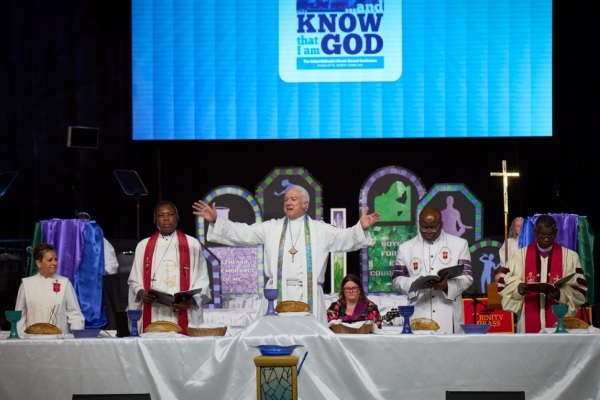Pastor Tackles Top 10 Arguments Against Complete Biblical Inerrancy

An Amillennial, Calvinistic pastor of a church in Oklahoma believes affirming the inerrancy of the Bible is as critical today as it has ever been, and has addressed 10 common objections.
Sam Storms, lead pastor for Preaching and Vision at Bridgeway Church in Oklahoma City, who describes himself as an "Amillennial, Calvinistic, charismatic, credo-baptistic, complementarian, Christian Hedonist," first explained the two views most evangelicals hold — limited inerrancy and complete inerrancy.
Storms argues for the doctrine of "complete inerrancy," meaning that the Bible is not deceived and is not deceiving, and that it does not affirm anything contrary to fact.
"Together both ideas (infallibility and inerrancy) express the idea that all Scripture comes to us as the very words of God and are thus reliable and true and free of error," he wrote.
Tackling common objections to biblical inerrancy, the pastor, who serves on the executive committee of the Evangelical Theological Society and is its past president, addressed the use of "sinful, error-prone human beings in the process of inscripturation."
"It is one thing to say that because we are human we can make mistakes. It is another thing to say we must (see especially 2 Pet. 1:20-21)," he noted. "The doctrine of inerrancy, therefore, does not diminish the humanity of Scripture any more than the deity of Christ diminishes the reality of his human flesh."
Secondly, he said that the Bible sometimes describes things as they appear, or phenomenologically, but that is not an error.
"We would be compelled to acknowledge an error only if the Bible explicitly taught that things appeared one way when in fact they did not, or if the Bible explicitly taught that things were one way when in actual fact they were altogether other," he argued.
"But when the Bible says that an event appears in a particular way, that is to say, it seems to the naked eye and from the vantage point of human observation to be a particular way, when in fact it actually is another way, is not an error."
Thirdly, Storms said that God accommodating Himself to human language and experience is also "no objection to inerrancy."
"Similarly, it is no objection to inerrancy that the Bible contains figures of speech. Some erroneously believe that inerrancy requires that everything in the Bible be taken literally, as if to suggest that this doctrine means that God literally has wings and that mountains literally leap for joy, etc. But truth is often expressed in non-literal or figurative and symbolic language," he noted.
As for grammatical errors found in Scripture, Storms said, "A statement can be ungrammatical in its style while entirely true in its content."
"As John Frame points out, 'I ain't goin'' is considered less proper than 'I am not going.' But the meaning of both phrases is clear. They say the same thing, and they can both express truth' (The Doctrine of the Word of God, 175)," he contended.
Storms also acknowledged that there are many different interpretations of the Bible but that does not pose a problem for inerrancy.
"The explanation for disparate interpretations must rest with the interpreter, not with the text. The fact that I am a credo-baptist (only believers should be baptized) and one of my close friends is a paedo-baptist (he practices infant baptism) means that one of us is wrong, but not that Scripture is," he offered as an example.
Addressing another objection, the Oklahoma pastor said, "It is no objection to inerrancy that authors of the NT cite or allude to the OT with less than verbal precision. We must be careful not to artificially impose on authors in the first century the literary standards of the twenty-first century.
"[A]lleged 'inaccuracies' must be judged by the accepted standards of the cultural-historical context in which the author wrote, not by the scientifically and computerized precision of 21st century technology."
He further defended some of the writers' lack of details when it comes to certain events.
"Related to this are those instances when two authors record the same event from differing perspectives and for different purposes. Thus, it is no error that Matthew mentions one angel at the tomb of Jesus (Matt. 28:2) while Luke mentions two (Luke 24:4). After all, if there were two, there was assuredly one," he wrote.
"If Matthew had said there was 'only' one angel and Luke had said there were two, we'd have a problem. But such is not the case."
Last year, a political science professor disputed Gallup poll data that suggested that the percentage of Americans who believe the Bible is the literal word of God are on the decline.
Ryan Burge, professor of political science at Eastern Illinois University, said in May 2017 that data from the General Social Survey shows that "the number of Americans who believe that the Bible is literally true has stayed remarkably steady since the mid-1990's."
He also pointed out that conservatives remained more supportive of biblical inerrancy, while moderates moved toward more liberal positions.
To read Storms' complete list, click here.






















